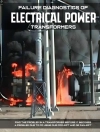Optofluidics. Process Analytical Technology offers in its 2nd edition a distinctive foundational introduction to the realms of materials, photonics, fluidics, and sensors. The work serves to unify the disparate disciplines, integrating the requisite fundamental knowledge with applied science. It thus establishes a new standard and definition for both the academic and industrial fields.
It encompasses the requisite in-depth knowledge of smart materials, semiconductor processing, optical waveguiding and fluid dynamics. The objective of this distinctive publication is to present information in a readily comprehensible format that can be readily applied in everyday situations. It is truly interdisciplinary but not overloading with information, providing the highly required and relevant information to become an expert in this exciting area, which is gaining more and more relevance and recognition in the context of sensing, material science and automation in biotechnology and pharmaceutical manufacturing.
The concept of the book is to serve as a textbook for advanced beginners from all life science, engineering and physics disciplines, providing self-assessment questions and further reading recommendations for further guidance and in-depth learning.
Über den Autor
__Dr. Dominik Rabus a globally recognized seasoned and independent manager constantly challenging the status quo and disrupting various industries fueled by RABUS.TECH. He holds a MS and Ph D in Electrical Engineering and Computer Science from the University of Stuttgart and the Technical University of Berlin respectively.
The main focus of Dr. Rabus is the integration and merger of technologies and skills supported by change & innovation management to empower and enable people to create sustainable, disruptive products, solutions and services. ‚I am convinced that novel break-through ideas can only be materialized and thus productised and brought to life using cross discipline thinking, understanding, in-depth knowledge and expertise‘. His main interests span across several fields: Photonics, Photonic Integrated Circuits (PICs), Sensors, Microfluidics & Optofluidics, Process Analytical Technologies, Pharma 4.0, Continuous Manufacturing, Real Time Release Testing, Anti-Counterfeiting, Lean Management and Life Science.
__Prof. Dr. Cinzia Sada holds a degree in Physics from the University of Padova and a Ph D in Materials Science from the University of Catania. She is Full Professor of Experimental Physics of Condensed Matter at the University of Padova, co-author of 3 books and more than 300 publications in international peer-reviewed journals in the field of integrated optics, opto-microfluidics, nanoscience and nanotechnologies. Her research focuses on the study of physical properties of materials and surface and interface modification processes, including film coating and material doping. Her main interest is the realisation of fully integrated platforms, with particular emphasis on opto-microfluidic devices for optical sensing, light-matter interaction for bio- and environmental applications and monitoring, as well as data analysis and physical modelling.
__Dr. Karsten Rebner is a Professor for Process Analytical Technology at Reutlingen University. After studying chemistry and obtaining his doctorate in physical chemistry, he gained extensive experience in the industry, serving as a manager for Process Analytical Technology in a large-scale chemical enterprise. His expertise lies in applying advanced analytical techniques to optimize and monitor industrial processes. Dr. Rebner’s research focuses on optical spectroscopy, including hyperspectral imaging, which enables detailed analysis of materials across a wide range of wavelengths. He also specializes in multivariate data analysis, using statistical methods to interpret complex datasets, enhancing the understanding and control of chemical and manufacturing processes. Additionally, he collaborates with interdisciplinary scientific and industrial teams to advance process innovation and contributes to academic literature in these fields, driving forward the application of technology in industrial analytics.












